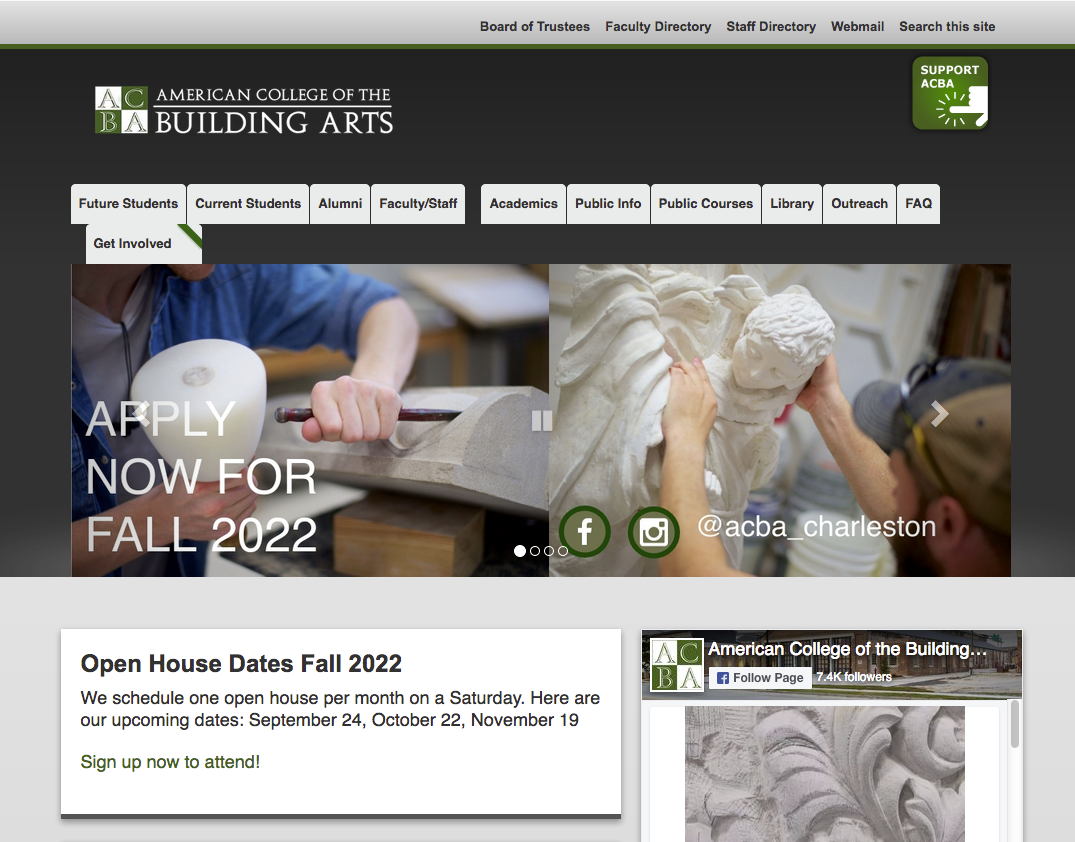Discover The Freedom Of Organic Leads

Hi, I'm Brett Singleton and you're probably here because you need help with appliance repair marketing.
You're interested in learning how I've kept my sites ranking in Google's top 3 results for the past 10 years.
That's what my Upcoming Mini-Course is all about!
To try my course out, watch the short video below. To start, I'd like to teach you something the majority of web developers and SEO experts don't know.
Learn to look through Google's eyes!
Available Text Space
So What Can I Do For Your Website?
Technical SEO is the science of looking at your site through Google's eyes and using their tools to measure different aspects of it.
Besides this, it is also looking at the wording of the site and it's meta-tags to optimize it so it's chances of ranking are better.
Many appliance repair business owners do so by embedding a contact form on their homepage, landing pages, and other pages. That way, when a customer submits an inquiry, you quickly receive an alert and can respond via email.
However, if you improve your customer experience even further, you can add a customizable widget to every page to start conversations via text. This communication channel is highly preferred because it's more convenient than email and less intrusive than a call. As the conversation starts, warm leads will be sent straight to your CRM (customer relationship management).
Great appliance repair websites also use best search engine optimization (SEO) practices on each page, like including relevant keywords and making the website mobile-friendly. The more SEO-friendly your site is, the higher it will rank on search engine results pages (SERPs) so shoppers visit your website before your competitors' sites.
In today's digital age, a website is often the first point of contact between a business and potential customers. As such, it is essential to have a website that loads quickly and efficiently. In addition to providing a better user experience, fast website speed is also critical for search engine optimization (SEO). In this article, we will explore why having a website that downloads quickly is so important for SEO purposes.
- Search engine ranking:
Search engines, such as Google, prioritize websites that provide a positive user experience. This means that websites that load quickly and efficiently are likely to rank higher in search engine results pages (SERPs) than those that take longer to load. In fact, website speed is one of the key factors that Google considers when ranking websites. Therefore, having a website that downloads quickly is essential for businesses that want to improve their search engine ranking.
- User experience:
Website speed is also important for user experience. Studies have shown that users are more likely to abandon websites that take longer than three seconds to load. Slow website speed can frustrate users and discourage them from returning to a website in the future. This can negatively impact a business's reputation and lead to a loss of potential customers.
- Mobile optimization:
More and more people are accessing the internet on their mobile devices, making mobile optimization a crucial aspect of website design. Mobile users expect websites to load quickly, and slow website speed can significantly impact mobile user experience. A website that downloads quickly not only improves user experience but also enhances mobile optimization, which is essential for SEO purposes.
- Bounce rate:
Website speed is also a crucial factor in reducing bounce rates. Bounce rate refers to the percentage of users who leave a website after visiting only one page. A high bounce rate can indicate poor website performance, which can negatively impact search engine ranking. A website that loads quickly and efficiently can reduce bounce rates and improve user engagement, leading to improved search engine ranking.
- Page speed insights:
Google provides a tool called PageSpeed Insights that evaluates website speed and offers suggestions for improvement. The tool analyzes website performance on both mobile and desktop devices and provides a score between 0 and 100. Websites that score higher are more likely to rank higher in search engine results pages, making website speed an essential aspect of SEO.
In conclusion, having a website that downloads quickly is essential for businesses that want to improve their search engine ranking and provide a positive user experience. Fast website speed can reduce bounce rates, enhance mobile optimization, and improve page speed insights, all of which are crucial for SEO purposes. Therefore, businesses should invest in optimizing their website speed to ensure that their website performs at its best and attracts potential customers.
Images are a crucial component of a website's design and user experience, but they can also impact a site's search engine optimization (SEO) performance. Images that are optimized for SEO can help improve a website's visibility, increase traffic, and enhance user engagement. In this article, we will discuss the latest improvements in image optimization for SEO purposes.
- Use high-quality images
Using high-quality images on your website can improve user experience and increase engagement. It can also positively impact your SEO efforts. Search engines favor websites that provide high-quality content, including images. Therefore, it's important to use images that are clear, sharp, and visually appealing.
- Compress images
Large images can slow down a website's loading speed, which can negatively impact both user experience and SEO. Compressing images can reduce their file size without compromising their quality. There are several online tools available, such as TinyPNG and Compressor.io, that can compress images without affecting their quality.
- Optimize image file names
Search engines use image file names to understand the content of an image. Therefore, it's important to use descriptive file names that accurately reflect the image's content. For example, instead of using a generic name like "IMG_1234.jpg," use a descriptive name like "blue-flower-in-garden.jpg."
- Use alt tags
Alt tags are a crucial component of image optimization for SEO purposes. Alt tags provide alternative text descriptions of images that search engines can understand. This is especially important for visually impaired users who rely on screen readers to access website content. Alt tags should be descriptive and accurate, and should include relevant keywords.
- Implement responsive images
Responsive images are images that automatically adjust their size and resolution based on the user's device and screen size. This can significantly improve a website's user experience, as well as its SEO performance. Google recommends using responsive images to improve website performance on mobile devices.
- Use structured data
Structured data is a standardized format that search engines can use to understand the content of a website. By using structured data for images, you can provide additional information about the image, such as its subject matter, location, and author. This can help search engines better understand the content of your website and improve its visibility in search results.
- Consider using a content delivery network (CDN)
A content delivery network (CDN) is a network of servers that can distribute website content, including images, to users around the world. Using a CDN can improve a website's loading speed and reduce the load on your server, which can positively impact your SEO performance. There are several CDN providers available, including Cloudflare and Amazon CloudFront.
In conclusion, optimizing images for SEO can significantly improve a website's visibility, increase traffic, and enhance user engagement. By using high-quality images, compressing images, optimizing file names and alt tags, implementing responsive images, using structured data, and considering a content delivery network, you can ensure that your images are fully optimized for SEO purposes.
Terms
Latent Semantic Indexing refers to content a search engine
would expect to hear around any keyword phrase in a natural conservation.
If we were discussing pets,
they would expect to hear related topics coming up: cats, dogs, puppies, kittens.
Below is a small sample of the hundreds of possible latent semantic phrases
that search engines would expect to be grouped with appliance repair.
- Home appliances repair
- Major appliance repair
- Small appliance repair
- Kitchen appliance repair
- Household appliance repair
- Appliance service and repair
- Appliance maintenance and repair
- Appliance troubleshooting and repair
- Professional appliance repair services
- Emergency appliance repair
- Refrigerator repair
- Oven and stove repair
- Dishwasher repair
- Washing machine and dryer repair
- Microwave repair
- Garbage disposal repair
- HVAC repair (heating, ventilation, and air conditioning)
- Appliance parts replacement
- Appliance installation and setup
- Appliance warranty repair.
By including these terms in a natural way on your web copy,
you give your site a better chance of being ranked.
Moz has a great article on how to apply semantic seo to different niches here.
Before we build a site, it will be helpful to understand how Google assigns rank to a site. Let's take care of the
Google has over 200 ranking factors. is based on In line with Google's goal to deliver fast, relevant answers to queries, one of the most important ranking factors is download speed? Why? Because site download speed lies at the core of user experience.
They expect for your pages to load in under 3 seconds, after that, they can reliably predict the rate at which potential viewers hit the back button and look else where.
The cornerstone of any science is repeatable results.
Because I'd already spent a decade in Web Development, it was easy to rank my first site to #1 on Google. I did it in eight weeks, my second one I took a more organic approach to and got it to #1 in 12 weeks.
Before you set out to create a website for appliance repair it might be wise to ask yourself what kind of site has the best chance of ranking well on Google Search?
In line with Google's goal to deliver fast, relevant answers to queries, one of the most important ranking factors is download speed? Why? Because site download speed lies at the core of user experience.
They expect for your pages to load in under 3 seconds, after that, they can reliably predict the rate at which potential viewers hit the back button and look else where.
It's so important Google developed a free Page Speed Insights tool to let you audit your site and see how well it measure's up against their standards.
American College Of The Building Arts
